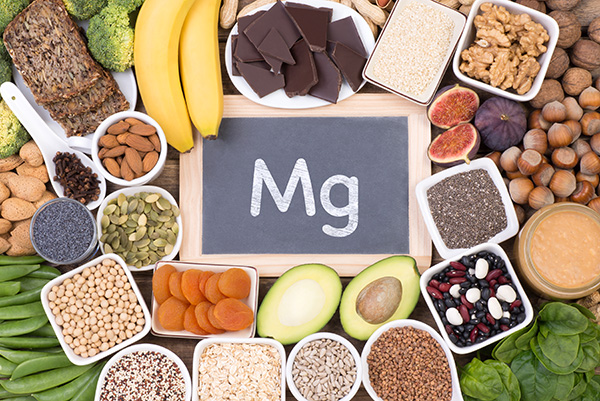Leeks: A sweet onion substitute packed with nutrition and health benefits
09/15/2025 / By Laura Harris

- Leeks, a member of the Allium genus, have ancient roots possibly in Central Asia, Egypt or the Mediterranean, and have long been a staple in European diets, especially in Wales and France.
- Leeks are low in calories and rich in vitamins (K, A, C, B9), minerals (iron, manganese), fiber and antioxidants like flavonoids and allicin, offering benefits for immunity, heart health and digestion.
- These compounds help reduce oxidative stress, support detoxification, lower blood pressure and promote gut health, making leeks a valuable addition to a health-conscious diet.
- Leeks can contain pesticide residues and trace heavy metals; choosing organic, washing leeks thoroughly and removing their outer layers help reduce chemical residues.
- Their mild, sweet flavor suits many dishes, including soups (like potato leek), tarts, risottos and traditional recipes like Welsh rarebit.
Leeks (Allium porrum), often described as a milder, sweeter cousin of onions, are a versatile and nutrient-dense vegetable with a rich history. Prized for their delicate flavor and health benefits, leeks have been a staple in European cuisine for centuries and are now gaining recognition in modern wellness circles. Packed with essential vitamins, minerals and antioxidants, leeks offer numerous health benefits while remaining low in calories and free of harmful fats.
Leeks belong to the Allium family, which includes garlic, onions and shallots. Their exact origins are debated, with some sources suggesting they originated in Central Asia, while others point to Celtic Britain or the Mediterranean basin. Historical records indicate that leeks were cultivated in ancient Egypt and later became a dietary staple in Rome, where Emperor Nero reportedly consumed them to improve his singing voice.
By the Middle Ages, leeks were widely grown across Europe, particularly in France and Wales, where they became a national symbol. Today, they are enjoyed worldwide, appreciated for their subtle sweetness and nutritional benefits.
Nutritional profile of leeks
Leeks are a low-calorie, nutrient-dense food, making them an excellent addition to a balanced diet. Here’s a breakdown of their key nutrients:
Vitamins and minerals
- Vitamin K – Essential for blood clotting and bone health
- Vitamin A (beta-carotene) – Supports vision and immune function
- Folate (B9) – Crucial for cell division and fetal development
- Iron – Helps prevent anemia and boosts energy levels
- Manganese – Supports metabolism and antioxidant defenses
- Vitamin C – Enhances immunity and collagen production
Antioxidants and phytonutrients
Leeks contain flavonoids (such as kaempferol) and sulfur compounds (like allicin, also found in garlic), which have anti-inflammatory, antimicrobial and cardiovascular benefits. These compounds also help: (Related: Leeks contain anti-cancer compounds.)
- Reduce oxidative stress
- Lower blood pressure
- Support detoxification
Dietary fiber
Providing 1.5 to two grams of fiber per serving, leeks can promote digestive health and help regulate blood sugar levels.
Low in calories, fat-free
A 100-gram serving contains only 61 calories, making leeks an ideal choice for weight management.
Leeks are generally safe to eat and nutritious, but conventional farming practices may expose them to pesticides and heavy metals. While they are not among the most heavily sprayed vegetables, they may still retain traces of pesticides such as chlorpyrifos (a neurotoxic insecticide banned in some countries) and glyphosate (a controversial herbicide).
Additionally, like other root vegetables, leeks may absorb trace amounts of heavy metals like cadmium and lead from contaminated soil, though levels are typically low unless grown in polluted areas. To minimize exposure, opt for organic leeks. Thoroughly wash raw leeks and peel the outer layers before cooking.
Culinary uses of leeks
Leeks have a mild, slightly sweet flavor, making them a versatile ingredient in soups, stews and side dishes.
- Potato leek soup (Vichyssoise) – A creamy, comforting classic
- Leek and cheese tart – A savory pastry dish
- Braised leeks – Cooked in broth or wine for tenderness
- Leek and mushroom risotto – Adds depth to this Italian favorite
- Welsh rarebit with leeks – A traditional Welsh dish
Leeks are a nutritional powerhouse with a rich history and modern culinary appeal. Their high vitamin and mineral content, antioxidant properties and digestive benefits make leeks a smart choice for health-conscious eaters. Whether enjoyed in a hearty soup, a delicate tart or simply sautéed as a side, leeks offer both flavor and wellness benefits, proving that this ancient vegetable is still a superfood today.
This story is not medical advice and is not intended to treat or cure any disease. Always consult with a qualified naturopathic physician for personalized advice about your specific health situation or concern.
Learn more about the health benefits of superfoods and other natural ingredients at NaturalNews.com, your trusted source for wellness insights and nutritional knowledge.
For a cutting-edge tool to expand your understanding of natural health, try Brighteon.ai, an innovative AI model created by Mike Adams, the Health Ranger. This free, downloadable tool is designed to decentralize knowledge, bypass censorship, and empower individuals with actionable information.
If you’re passionate about nutrition, natural medicine, and uncensored discussions, visit Brighteon.com and a free speech video platform and join our vibrant communities on Brighteon.IO and Brighteon.social. Dive into open conversations about food, ingredients and holistic health today!
Watch this video about the benefits and side effects of leeks.
This video is from the Daily Videos channel on Brighteon.com.
More related stories:
STUDY: Eating foods high in flavonols (like quercetin) can help you stay strong as you age.
Traditional Chinese medicine treats sickness by restoring an individual’s life force energy.
Leeks: An underrated superfood with science-backed health benefits.
Sources include:
Submit a correction >>
Tagged Under:
#nutrition, antioxidants, food is medicine, food science, functional food, health science, ingredients, Leeks, natural health, nutrients, organics, root vegetables, veggie
This article may contain statements that reflect the opinion of the author





















